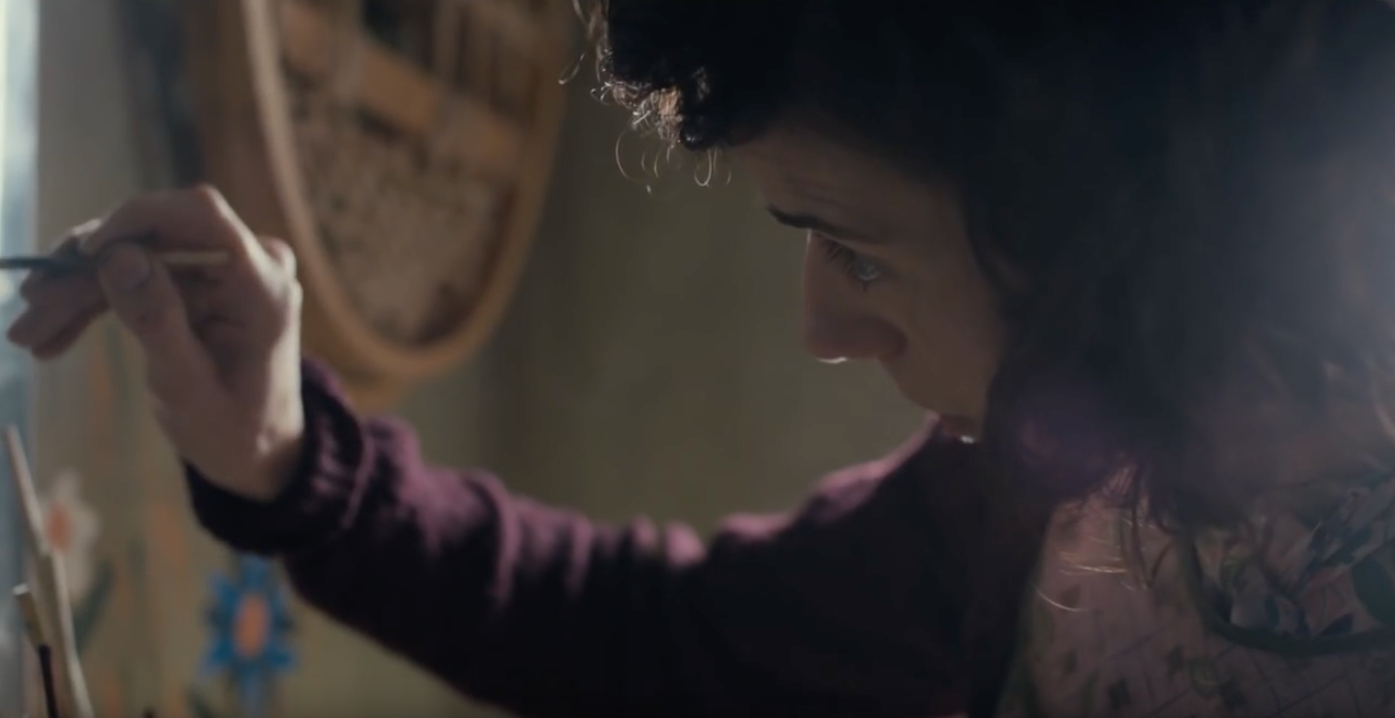I have the sneaking suspicion that Sally Hawkins has been quietly establishing herself as one of the finest actresses in the film industry today, if these past few years have been any indication. While she made her feature film debut in 2002 in a Mike Leigh, I first began to take notice of the actress after Academy Award nomination in 2014 for Woody Allen’s Blue Jasmine. Most recently, she delivered a powerhouse performance in Guillermo del Toro’s The Shape of Water, which I noted in my review was one of the best films of 2017, whilst earning the actress her second Academy Award nomination, and is still pending. The film to solidify my opening statement, though, is the more modest Maudie, directed by Aisling Walsh.
An Irish and Canadian coproduction, Maudie is a 2017 biopic based on the life of famed Canadian folk artist Maud Lewis. In its opening scenes, Maud is shown to be an arthritic woman living with her aunt, who believes Maud to be too debilitated by her condition to live a life of her own. After her debt-ridden brother informs her that he sold their family home, much to Maud’s dismay, she eventually moves out of her aunt’s house to be a live-in maid for a poor local fish peddler by the name of Everett Lewis (Ethan Hawke). Living with the temperamental Everett is initially a challenge, but as a love develops between the two, so too does Maud’s artistic endeavours, revealing a talent and passion that overcomes the hardships of her life.
“I love a window….The whole of life already framed.” This poetic quote, uttered by Maud in a late scene, perfectly encapsulates not only the script’s sharp writing, but also the essence of Maud’s art. This in turn no doubt influenced Walsh’s empathetic approach to direction, whose photography frequently pays homage to Maud and her admirable outlook on the world at large.
Despite this, Maud lived a very enclosed life, from the area in which she lived, to her famously tiny home, yet her art captured a broad beauty that was unadulterated by her own troubles. These are qualities I endlessly admired about Maud, and I commend Sherry White’s screenwriting for the manner in which she captures not only the optimistic allure of her paintings, but also the discernably quiet strength of Maud’s character.
Yet, Maudie is not as colourfully sanguine as her paintings, and the artist’s strength cannot be represented without adversity, but it is here that Hawkins truly shines as the titular character. Much like Daniel Day Lewis’ performance as an artist with cerebral palsy in My Left Foot, Hawkins is utterly committed to the role, capturing not only Maud’s painstaking physical challenges, but also the challenges faced by women of the time, who were usually relegated to ‘wifely’ duties, or silenced in the name of masculine whims.
An initial contributor to these challenges is her own eventual husband Everett, who grew up an orphan and thus has difficulty connecting with people and maintaining relationships. Hawk delivers a strong performance here that goes against his usual typecasting, relying more on grizzle and gruff, as opposed to the evoking the charisma seen in Training Day, or his innate charm in Boyhood. However, I initially found it difficult to relate with Everett, owing greatly to his embittered, abusive nature in the film’s first half.
Yet, thanks in no small part to Hawk’s performance and Walsh’s direction, he eventually gains my sympathy as a man unable to express himself outwardly. Furthermore, the screenplay develops his relationship with Maud in meaningful ways, as he begins to express his devotion to her by assuming housekeeping duties in aid of her art, defying his own initial preconceived notions of domestic roles. Both characters ultimately assist in revealing one another to audiences, and it is for this reason that the relationship between Maud and Everett eventually becomes the film’s greatest asset, driving home a conclusion which at once pays tribute to Maud’s life and work, and signifies the lingering sense of loss felt by Everett. Admittedly, this critic, for one, found himself a little choked up as that final shot fades to black, as Maud’s voice utters once more “The whole of life already framed.”

